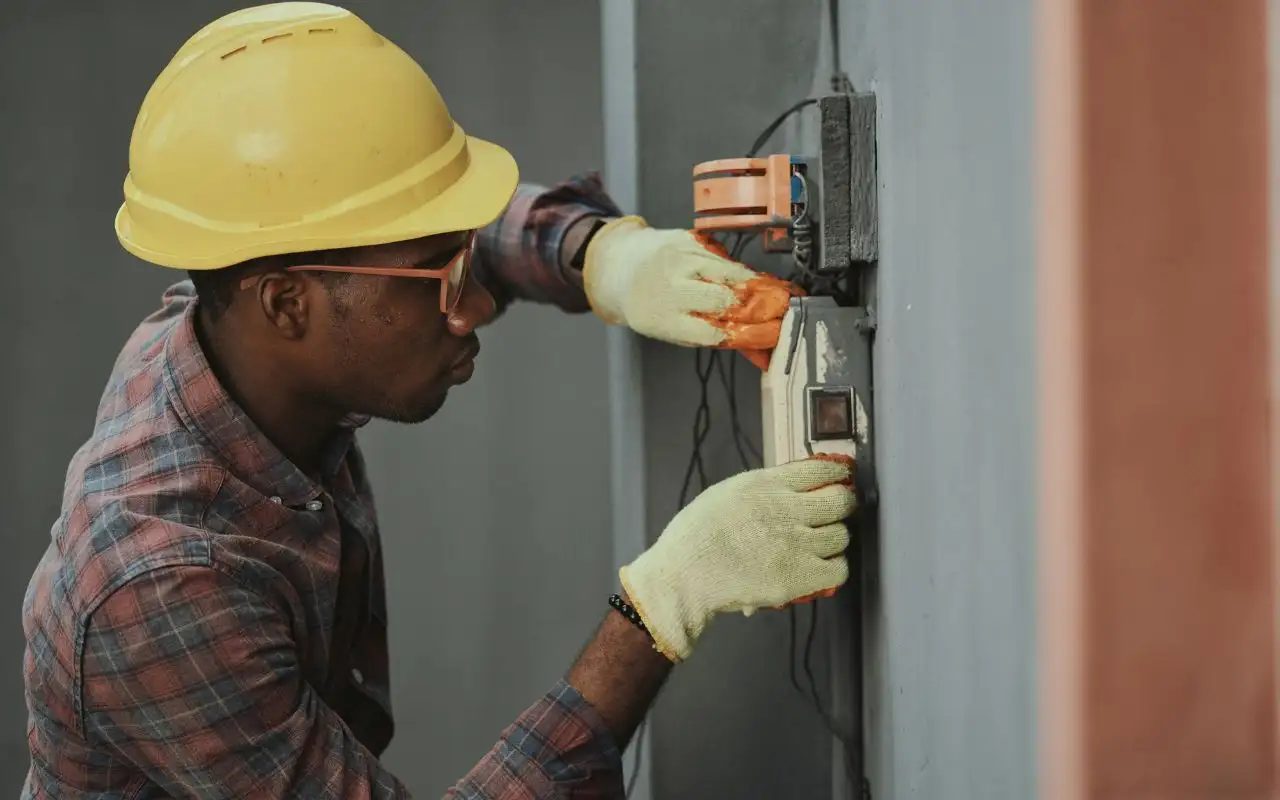The average monthly salary stands at R 16,154, approximately 31% below the national average. Starting pay is around R 40.30 per hour, potentially rising to over R175 per hour.
Salaries diverge across roles: Red Seal Electricians earn about R25,200 monthly, Master Electricians R23,910, and Installation Electricians R22,450.
In contrast, Electrician Assistants and Apprentice Electricians earn lower amounts, at R 9,690 and R 6,460 respectively.
Experience significantly impacts earnings, with Junior Electricians (less than three years experience) at R8,000 monthly, mid-career electricians at R15,000, and Senior Electricians (10-20 years experience) at around R20,000.
Those with over 20 years of experience can surpass R26,000 monthly. The field is predominantly male, with 96% male representation.
Factors that Influence An Electrician Salary in South Africa
1. Experience
More years working translates to higher pay, with senior electricians earning significantly more than apprentices.
2. Qualifications
Holding relevant certifications (e.g., Red Seal, NQF levels) increases earning potential and opens doors to specialized roles.
3. Specialization
Electricians with expertise in specific areas like industrial, domestic, or high-voltage systems command higher salaries.
4. Location
Urban areas generally offer higher wages due to increased demand and competition, while rural areas might have lower pay scales.
5. Employer
Working for large companies, government agencies, or specialized firms often comes with better compensation packages than smaller businesses.
6. Industry
Certain industries, like mining, construction, or power generation, tend to pay electricians more due to the demanding nature of the work.
7. Union Membership
Being part of a union can offer benefits like salary negotiations, collective bargaining agreements, and job security, potentially impacting earnings.
8. Overtime and Bonuses
Electricians who regularly work overtime or are eligible for performance-based bonuses can significantly boost their income.
9. Additional Skills
Possessing additional skills like data cabling, solar panel installation, or electrical design can enhance earning potential.
10. Self-Employment
Starting your own electrical business offers flexibility and income control, but requires entrepreneurial skills and navigating market fluctuations.
Education and Qualifications of An Electrician in South Africa
Becoming an electrician in South Africa requires specific education and qualifications, which typically involve a combination of formal education, practical training, and certification:
National Senior Certificate (Matric)
A high school diploma (Matric) is generally required, ideally with good marks in Mathematics and Physical Science. This forms the basis for further education and training in the electrical field.
National Certificate (Vocational) in Electrical Infrastructure Construction
Offered at many Technical and Vocational Education and Training (TVET) colleges, this program provides foundational knowledge and practical skills in electrical engineering.
Technical Training (N1-N3 Certificates)
These certificates, offered at TVET colleges, focus on the theoretical aspects of electrical engineering. They cover subjects like electrical trade theory, industrial electronics, engineering drawing, and mathematics.
Apprenticeship
An essential part of becoming a qualified electrician is completing an apprenticeship under a qualified electrician. This typically lasts 3-4 years and includes both practical and theoretical training.
Trade Test
After completing an apprenticeship, aspirants must pass a trade test at an accredited trade test centre to become a certified electrician. Passing this test grants the title of ‘Qualified Electrician’.
Further Qualifications and Specializations
Electricians can further their education by pursuing National Certificates (N4-N6) in Electrical Engineering or specialized courses for specific areas like solar energy, refrigeration, or instrumentation.
Registration with the Electrical Contracting Board of South Africa (ECB)
While not always mandatory, registration with the ECB is beneficial as it is a mark of credibility and professionalism.
Continued Professional Development (CPD)
To stay updated with the latest technology and regulations, electricians often participate in CPD activities, including workshops, seminars, and additional courses.
Special Licenses
For certain types of electrical work, such as high-voltage systems, additional specialized training and licensing might be required.
Safety Certification
Due to the hazardous nature of electrical work, electricians often need to complete safety courses, such as First Aid and Fire Fighting, and understand the Occupational Health and Safety Act regulations.
This combination of education, training, and certification ensures that electricians in South Africa are well-equipped with the necessary skills and knowledge to safely and effectively perform their duties.

